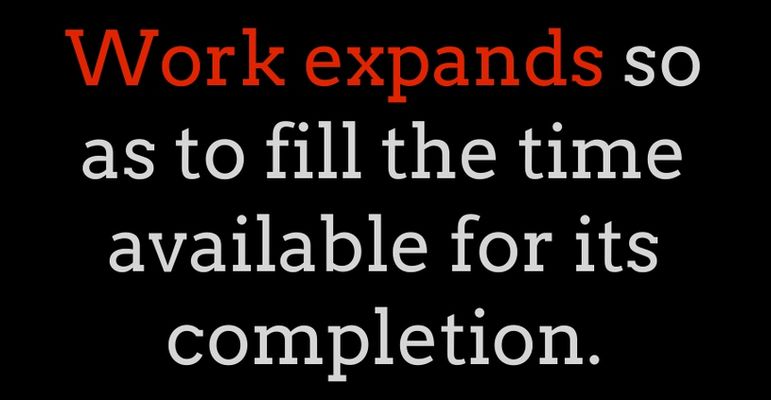Apropo de articolul meu, Cea mai mare problemă cu programul de la 9 la 5, am găsit și cea mai bună explicație din spatele săptămânii de lucru de cel puțin 40 de ore, via Andrei:
The real reason for the forty-hour workweek
The ultimate tool for corporations to sustain a culture of this sort is to develop the 40-hour workweek as the normal lifestyle. Under these working conditions people have to build a life in the evenings and on weekends. This arrangement makes us naturally more inclined to spend heavily on entertainment and conveniences because our free time is so scarce.The eight-hour workday developed during the industrial revolution in Britain in the 19th century, as a respite for factory workers who were being exploited with 14- or 16-hour workdays.
As technologies and methods advanced, workers in all industries became able to produce much more value in a shorter amount of time. You’d think this would lead to shorter workdays.
But the 8-hour workday is too profitable for big business, not because of the amount of work people get done in eight hours (the average office worker gets less than three hours of actual work done in 8 hours) but because it makes for such a purchase-happy public. Keeping free time scarce means people pay a lot more for convenience, gratification, and any other relief they can buy. It keeps them watching television, and its commercials. It keeps them unambitious outside of work.
We’ve been led into a culture that has been engineered to leave us tired, hungry for indulgence, willing to pay a lot for convenience and entertainment, and most importantly, vaguely dissatisfied with our lives so that we continue wanting things we don’t have. We buy so much because it always seems like something is still missing.
Pe scurt, cu cât lucrăm mai mult suntem dispuși să plătim mai mult pentru distracții, gadgeturi și alte lucruri care ne crează senzația că viața noastră e completă, seara după ora 6 și în weekend, când mai respirăm un pic relaxați. Muncim 70 de ore pe săptămână, deci ne permitem ultimul iPhone, 2-3 vacanțe pe an în locații exotice sau o mașină de lux în rate, nu?
În schimb, dacă am munci doar 2-3 ore pe zi s-ar putea să descoperim că nu avem nevoie de toate aceste lucruri pentru a fi fericiți, am găsi mai mult timp pentru pasiunile noastre, pentru lucrurile care nu costă bani, dar ne împlinesc ca oameni, ne fac să zâmbim mai des și mai sincer. E ciudat cum atunci când ai timp nu ai bani și când nu ai timp ai bani, dar nu apuci să îi cheltui.
Și ca să nu închei articolul pesimist, vă las cu o prezentare despre time management. La mine lucrurile au început să funcționeze mai bine când am început să aplic conceptul Timpul este bani, cu alte cuvinte să estimez cât valorează timpul meu cu adevărat. A ajutat și faptul că am început să spun NU mai des, dacă înainte încercam să ajut pe oricine, oricând, acum sunt mai selectiv cu cei pe care îi ajut pentru că se aplica regula nr. 1, Timpul este bani.





RT @mariussescu: De ce lucrăm 40 de ore pe săptămână http://t.co/bUgetE44fD
RT @mariussescu: De ce lucrăm 40 de ore pe săptămână http://t.co/bUgetE44fD
Top 5 Posturi: De ce lucram 40 de ore pe saptamana (mariussescu.ro) http://t.co/UhlG7W8gh8
Top 5 Posturi: De ce lucram 40 de ore pe saptamana (mariussescu.ro) http://t.co/UhlG7W8gh8
De ce lucrăm 40 de ore pe săptămână – http://t.co/RIyHolC5OF via @mariussescu
De ce lucrăm 40 de ore pe săptămână – http://t.co/RIyHolC5OF via @mariussescu